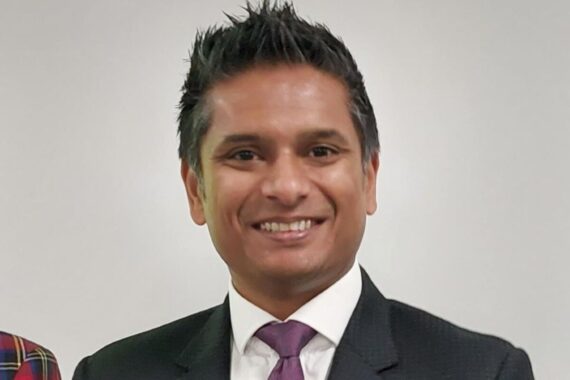Increase primary care funding to 12%, says GP MSP

Primary care should receive 12% of the NHS budget in Scotland, according to GP and Conservative member of the Scottish Parliament (MSP) Dr Sandesh Gulhane.
Delivering the keynote speech at today’s Pulse LIVE conference in Glasgow, Dr Gulhane said this level of funding would enable a ‘modern, efficient and local’ primary care service in Scotland.
He also argued that Scotland’s NHS is ‘stuck in a bind’ of ‘managed decline’ under the Scottish National Party (SNP), whom he accused of not sufficiently prioritising NHS investment.
He said: ‘I would increase the funding envelope to primary care to 12% of the budget of NHS, because 90% of patient contact occurs in primary care. So let’s move money to where the patients are.’
Dr Gulhane, who is a practising GP in Glasgow, went on to argue that the NHS in Scotland needs a ‘reset’, with a ‘vision and a strategy’ and ‘credible policies that will tackle today’s known challenges, whilst being fit for the future’.
‘Over the past two years, I’ve consulted far and wide with patient groups, clinicians, health economists, academics, technologists and third sector organisations, and it’s clear that we need a health service that is modern, efficient and local. A health service that is accessible for all our population – urban, rural, remote.
‘So what do I mean by modern? Well, here in Scotland, we would adopt medical technology solutions at scale,’ he said.
‘Our modern NHS would embrace innovation and introduce the latest medical equipment. So in rural and remote areas, this would include mobile screening services like lung screening, and this would take diagnostics out into the community.
‘Whilst we would be screening for lung cancer, we could also screen patients for other things.’
The MSP also argued in favour of the use of AI in general practice, with one example given as automatic reordering of equipment for practices when stocks run low.
Facing questions from the audience, he also defended the Scottish Conservatives’ position against minimum unit pricing for alcohol, a public health measure that was first introduced in Scotland in 2018, following a question from Lothian LMC chair Dr Iain Morrison.
An official evaluation by Public Health Scotland, published in June this year, found that minimum unit pricing ‘has had a positive impact on health outcomes, including addressing alcohol-related health inequalities’, and a ‘3% reduction in alcohol consumption at a population level, as measured by retail sales’.
‘It has reduced deaths directly caused by alcohol consumption by an estimated 13.4% and hospital admissions by 4.1%, with the largest reductions seen in men and those living in the 40% most deprived areas,’ the report said.
But Dr Gulhane argued that people who are addicted to alcohol will continue drinking regardless of pricing, and he pointed out that statistically, Scotland has recently seen an increase rather than reduction in deaths from alcohol.
He also said £270m raised from the introduction of the minimum unit pricing has gone ‘into the pockets’ of supermarket chains.
He said: ‘So if you introduce a policy which increases the price, what’s going to happen to the dependent drinkers? Well, they’re going to continue to drink and pay more. But what mitigations are being put into place but this group of people that we know we’re going to be affected adversely?
‘Nothing. Nothing has been put into place. Alcohol brief interventions have fallen, the number of people being referred to drug and alcohol services have fallen. The number of people getting help has fallen. People with addiction, people who are dependent, have been given a worse deal.’
Scottish GPC chair Dr Andrew Buist told Pulse he had just this week asked Scottish health leaders for an increased proportion of funding for general practice.
He said: ‘I agree with Sandesh – you can argue how much we currently spend – I’ve heard 6.25%, 7.2% – it depends what you include. The bottom line is we spend an insufficient share of our NHS budget in general practice and primary care.’
Today’s conference is the first time Pulse LIVE has visited Scotland since before the pandemic, with a packed schedule featuring career development workshops, clinical updates and policy updates.
Pulse October survey
Take our July 2025 survey to potentially win £1.000 worth of tokens

Related Articles
READERS' COMMENTS [2]
Please note, only GPs are permitted to add comments to articles










I have a feeling devolved spending on NHS is influenced extremely heaving by devolved government funding envelope from central government, and certainly in Wales, the westminster Tories are limiting what WAG can spend on NHSWales through an overall budget reduction.
Did anyone point out that it’s his own Party who is managing the decline of the NHS!
Isn’t it great Politicians know all the answers until they get into the position to actually implement it. See Jeremy for details!